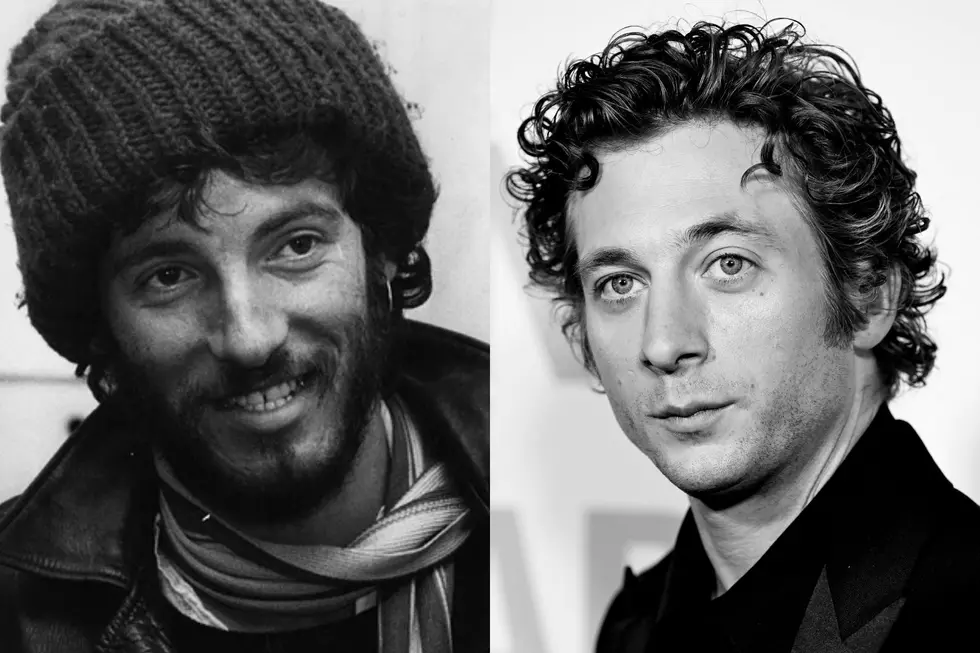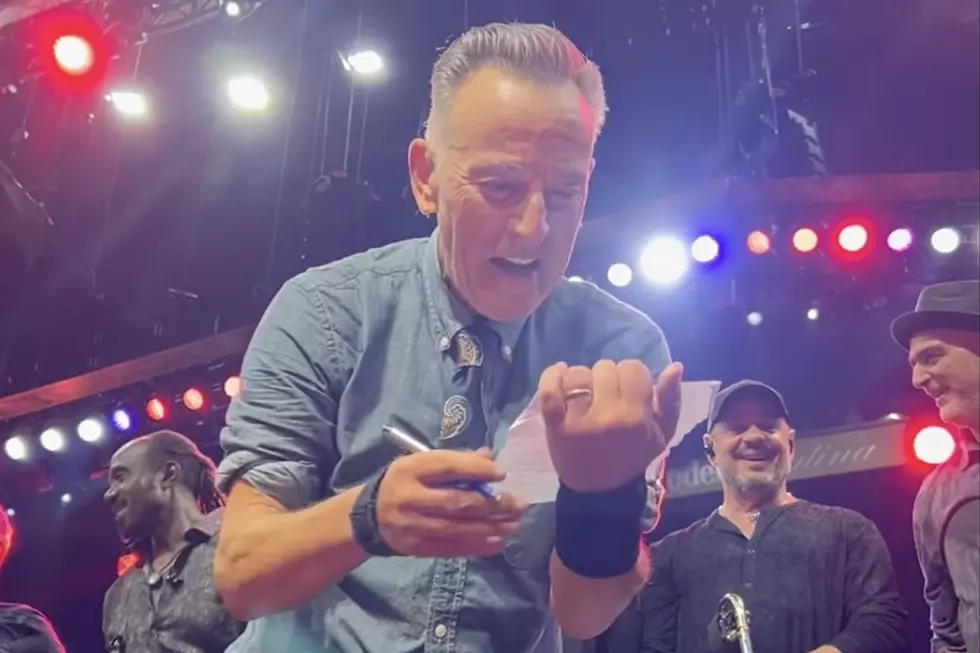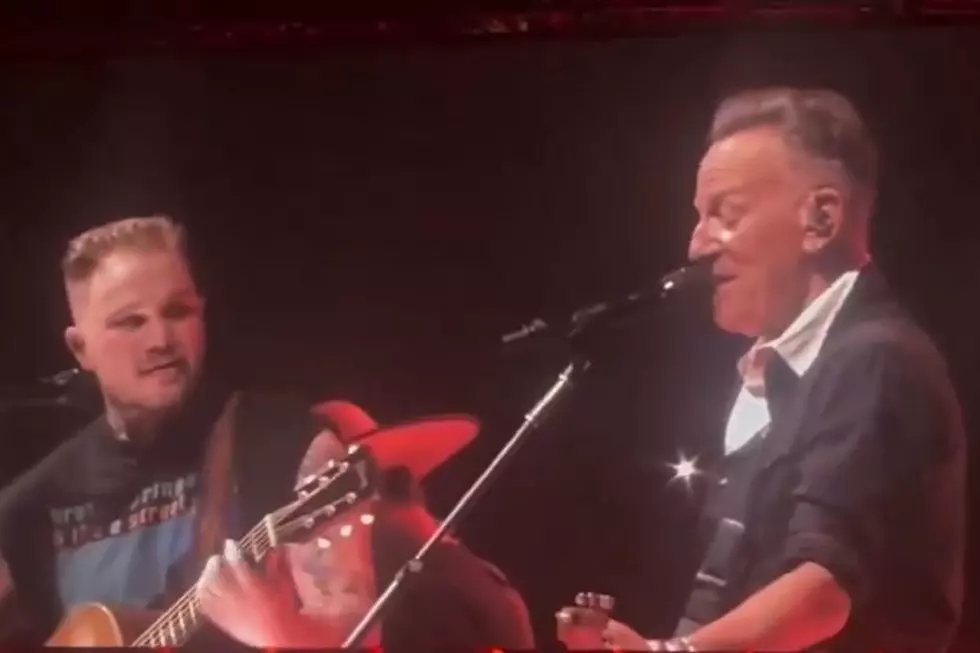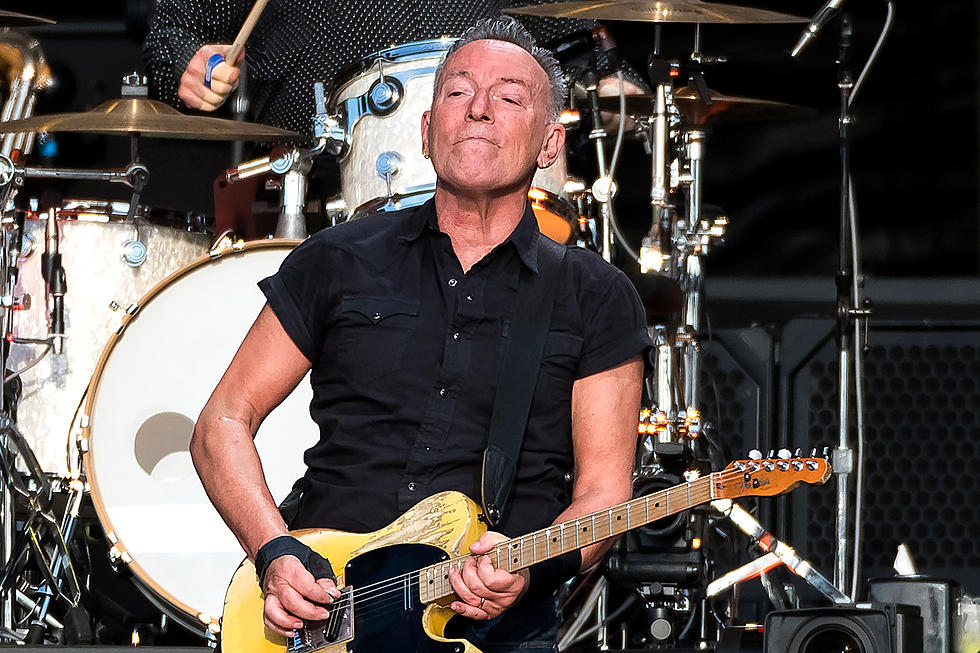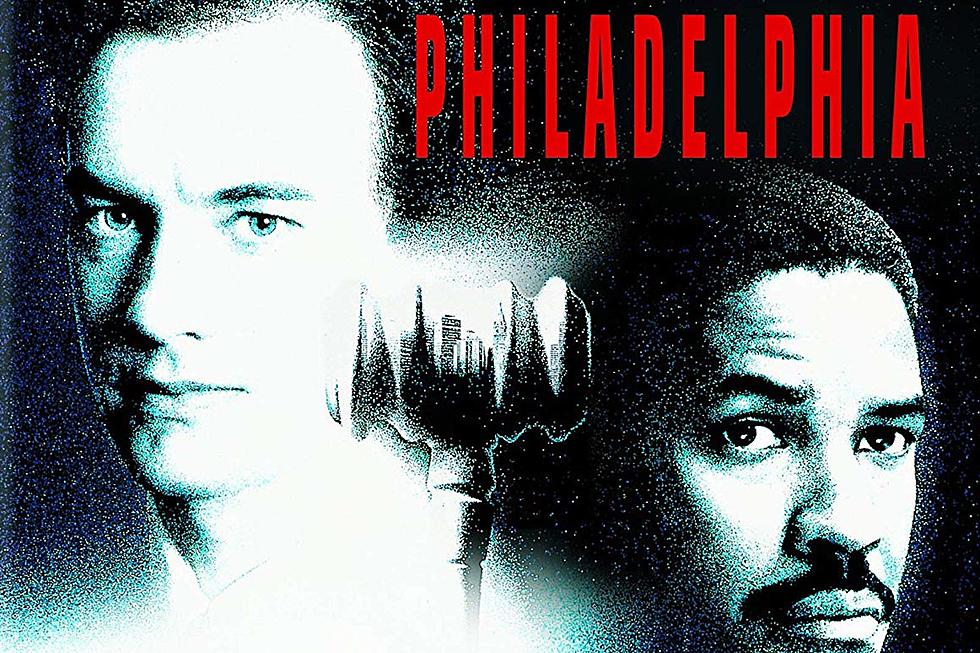
How a Bruce Springsteen Experiment Completed ‘Philadelphia’
Philadelphia is remembered today for the sensitive portrayal of an AIDS stricken lawyer by Tom Hanks. And for the bravery of writer Ron Nyswaner and director Jonathan Demme in bringing such a ground-breaking story to cinemas everywhere. But also for the music that completed this emotional journey.
Released on Dec. 22, 1993, the film was one of the first mainstream Hollywood productions to acknowledge the era's defining health crisis, earning Hanks an Academy Award for his work as attorney Andrew Beckett. The accompanying music became similarly celebrated, as the album went platinum. Bruce Springsteen provided "Street of Philadelphia," a sparse and haunting synth-focused ballad. Peter Gabriel ("Lovetown"), the Indigo Girls ("I Don't Want to Talk About It"), Sade ("Please Send Me Someone to Love") and Neil Young ("Philadelphia") also made important contributions.
Gabriel always had a connection to the theatrical, going back to his costume-wearing days as Genesis' frontman, and he regularly gave away songs to film directors. "Lovetown," an atmospherically soulful song, was special in that it previewed where Gabriel would go on 2002's Up, in particular with the quietly emotive song "Sky Blue." The theme, comparing a relationship to a walled city, rang particularly true in Philadelphia.
Sade's "Please Send Me Someone to Love" was a breathy plea, while the Spin Doctors added a hipster lope to Creedence Clearwater Revival's "Have You Ever Seen the Rain?" The Indigo Girls' cover of "I Don't Want to Talk About It," written by Danny Whitten and included on Crazy Horse's eponymous 1971 album, pointed directly to one of the film's most touching moments: Neil Young's desperately sad "Philadelphia" framed a final scene where Beckett's family gathers to watch home movies from his childhood.
The director felt something more was needed. "He had Neil Young working first, so Neil came up with 'Philadelphia,' which ended the film," Springsteen said at the 2017 Tribeca Film Festival. "He wanted a rock song for the beginning, so I said I'd give it a shot."
Watch Peter Gabriel Perform 'Lovetown'
Springsteen, however, was at loose ends – estranged from the E Street Band, and coming off disappointing receptions for Human Touch and Lucky Town, a pair of solo albums released on the same day in 1992. He had trouble getting started. "I hooked up my little studio, and I tried for a day or so to come up with something," Springsteen added, "and I hadn't come up with anything."
Demme wanted to place the proposed song at the beginning, with a camera traveling with Hanks down the streets of the film's namesake city. The director sent a rough version of the scene, and the logjam was broken – though Springsteen remained uncertain.
"I had some lyrics. Eventually I just came up with that tiny little beat and a track, and I figured it wasn't what he wanted, but I sent it to him anyway" Springsteen said at Tribeca. "I sent it to him and said, 'What do you think?' and he said, 'Great,' and that was it. It took about two days."
That quick turnaround belied the depths plumbed by Springsteen on what turned into a humanizing, community-building song. “To write from the perspective of someone who is emaciated, with AIDS, is to forsake all of the strength Springsteen had staked his career on,” Jackson Browne enthused in a talk with Rolling Stone. “It is quite a feat.”
The film had its opening sequence. "Well, I have to tell you, if you ever want to have a great moment in a motion picture," Hanks told Variety, "walk out a door and make sure they just put up a Bruce Springsteen song."
Watch Bruce Springsteen Perform 'Streets of Philadelphia'
Both Young and Springsteen were nominated for an Oscar. Young performed at the ceremony, where his now-ex wife Pegi debuted as a background singer, but by then "Streets of Philadelphia" had become a gold-selling Top 10 juggernaut – Springsteen's first since 1987. He came away with the Academy Award.
It was the first of many such honors, as Springsteen also claimed multiple Grammys and a Golden Globe for "Streets of Philadelphia." During the Grammy ceremony, Springsteen made special mention of those "who have lost their lovers and friends and sons, and said this song meant something to them."
This sweeping, out-of-nowhere success ultimately knocked Springsteen a bit off track. He spent the majority of 1994 working on an album apparently titled Blindspot which was similarly keyboard based. "Much of what emerged shared an undulating, trance-like sound," author Peter Ames Carlin said in the best-selling Bruce.
Springsteen ended up changing his mind. An early take on "Secret Garden" emerged, and he placed the song "Missing" from the 1995 soundtrack to Sean Penn's The Crossing Guard, but otherwise music from the Blindspot era remains widely unheard. By early 1995, Springsteen was back – though only ever-so-briefly – with the E Street Band.
Bruce Springsteen Albums Ranked
Why Bruce Springsteen Calls Killers Collaboration ‘Cathartic’
More From Ultimate Classic Rock
